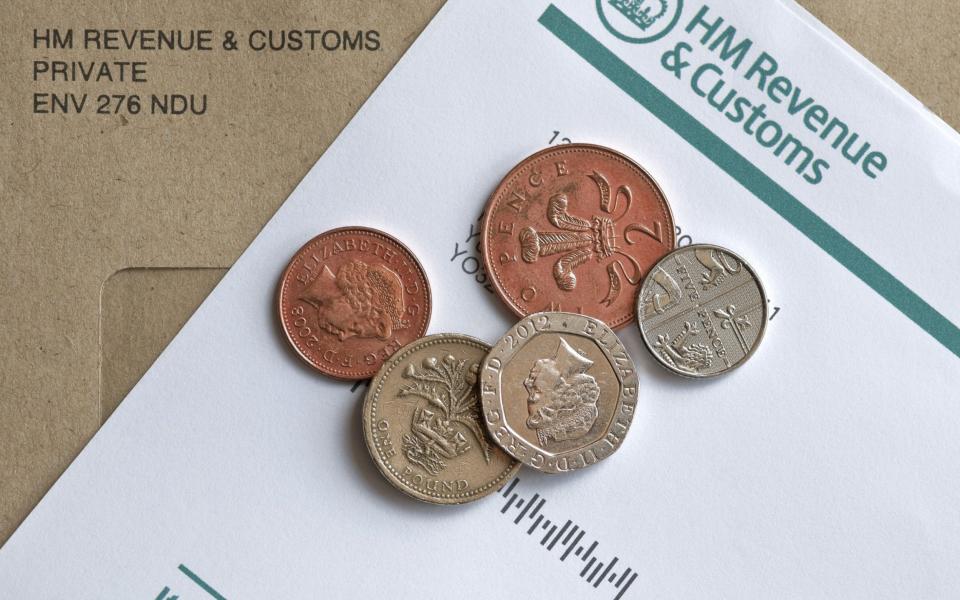Higher share of pensioners pay income tax than working people for first time, says IFS

A higher share of pensioners are paying income tax than working people for the first time amid a surge in worklessness and Tory stealth raids, analysis has found.
The Institute for Fiscal Studies (IFS) said 65pc of older Britons now pay tax on their income, up from just 48pc since 2010.
It comes after the tax-free allowance for pensioners has been cut in real terms, while the state pension has risen by £3,700 to £11,502.40 since 2010 because of the triple lock.
The income tax threshold was frozen at £12,570 in April 2022, meaning a pensioner needs only to earn £1,067.60 above the state pension a year to start paying tax.
Meanwhile, the share of working-age people paying income tax stands at 63pc amid a jump in long-term sickness since Covid that has left 800,000 more people out of work.
The findings come as official data published on Tuesday is expected to lay bare the scale of Britain’s worklessness crisis.
The share of working-age people who are economically inactive, meaning they are neither employed nor job-hunting, has surged by 800,000 since Covid to 9.4m.
Helen Miller, deputy director of the IFS and an author of the report, said: “Governments since 2010 have made choices about how much tax revenue to raise, and from whom to raise it.
“One remarkable result is that significantly higher income tax revenue has been achieved while working-age individuals on low and middle incomes have actually seen their income taxes cut. A long-running trend towards raising more income tax from those with the highest incomes has been continued.”
One significant factor has been George Osborne’s “granny tax”. The then-chancellor in 2012 started phasing out a century-old relief introduced by Winston Churchill allowing pensioners to start paying tax at a higher income level than workers.
As a result a pensioner receiving £25,000 a year now pays around £400 more in income tax than they did in 2010, while a worker earning the same amount pays about £1,200 less.
At the same time, pensioners’ incomes have outpaced those of working-age people because of the triple lock - which ensures state pension payments rise in line with the highest of inflation, average wage growth or 2.5pc every year - resulting in older people being taxed in far greater numbers than previously.
There were only 4.9m taxpayers aged 65+ in 2010-11, a figure which has nearly doubled to 8.5m. Without the changes in policy, this number would have been significantly lower at 6.3m.
Meanwhile, declining taxation of those on low and middle incomes means the number of working-age taxpayers has risen less than it otherwise would.
The number of younger taxpayers has grown from 26.4m to 27.4m since 2010 - nearly one million less than if the share stayed at 2010 levels.
Ms Miller added: “Unfortunately, governments have chosen not to fix any of the big structural problems with how taxes are designed. The list of major tax problems in 2024 is a copy-and-paste from the 2010 list. Missing the opportunity to reform taxes substantively means missing opportunities to boost growth and remove inequities that arise when similar people are taxed differently. Whether the next government chooses to raise or cut taxes overall, we should all hope that it will choose to leave us with better taxes.
“Promises not to increase certain taxes are a mistake. They can be a serious impediment to good tax reform. All parties should avoid putting tax commitments in their manifestos that would impede making the tax system better.”
Separate analysis by the IFS published today showed the migration of the benefits system to Universal Credit will leave many older couples thousands of pounds worse off.
The switch will punish couples where one person is of state pension age or older while their partner is younger.
Seven in 10 of these couples will lose out by more than £4,000 a year, the think tank said.
Two partners completely reliant on Universal Credit would be entitled to £17,300 a year in pension credit previously but will once the roll out of universal credit is complete within 18 months only be entitled to £7,400.
Meanwhile, a report by the charity Independent Age, warned the number of people renting into old age is set to treble by 2040 amid a surge in pensioner poverty.
The charity said the report should be “a wake-up call” for political parties.

 Yahoo Finance
Yahoo Finance 